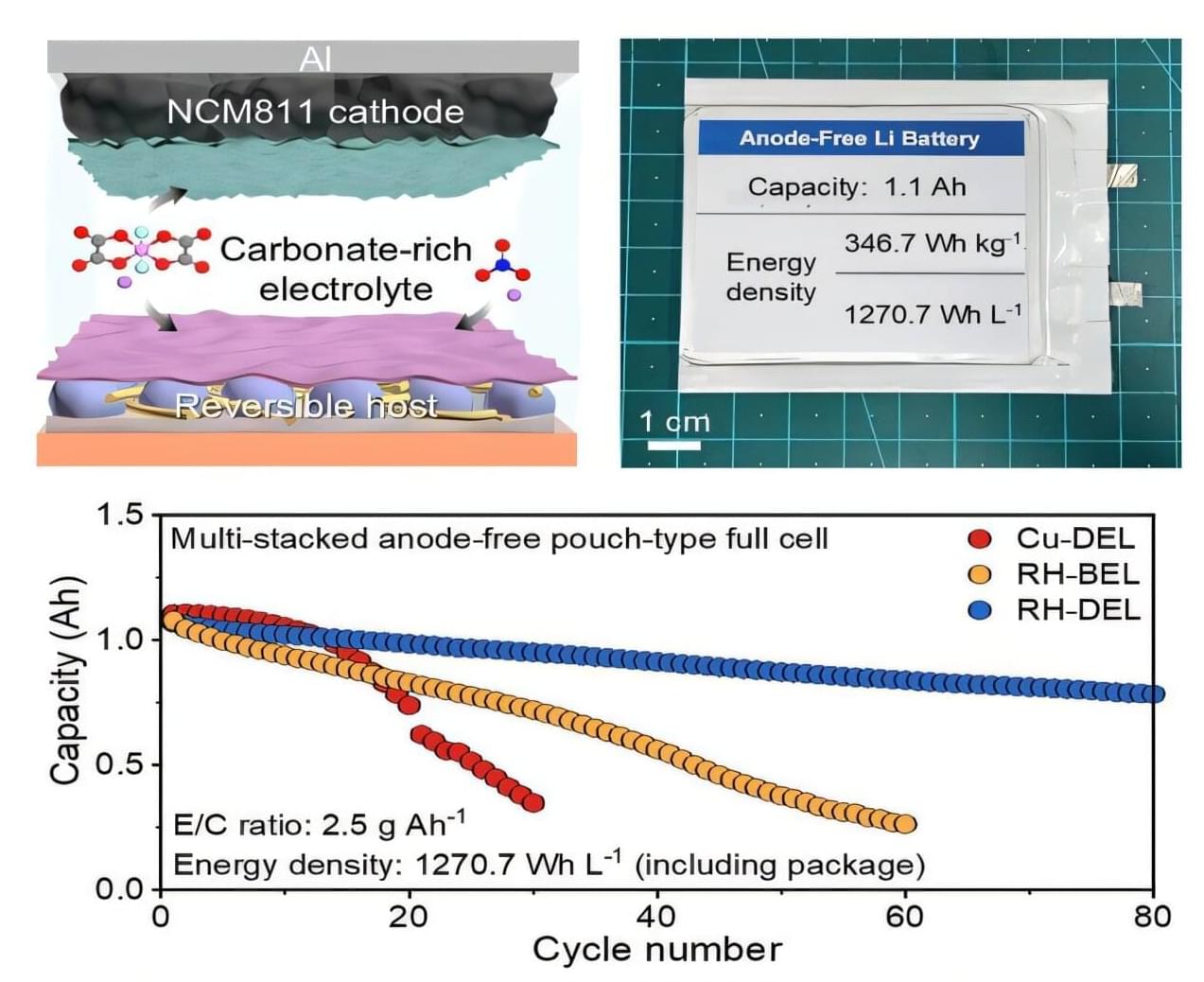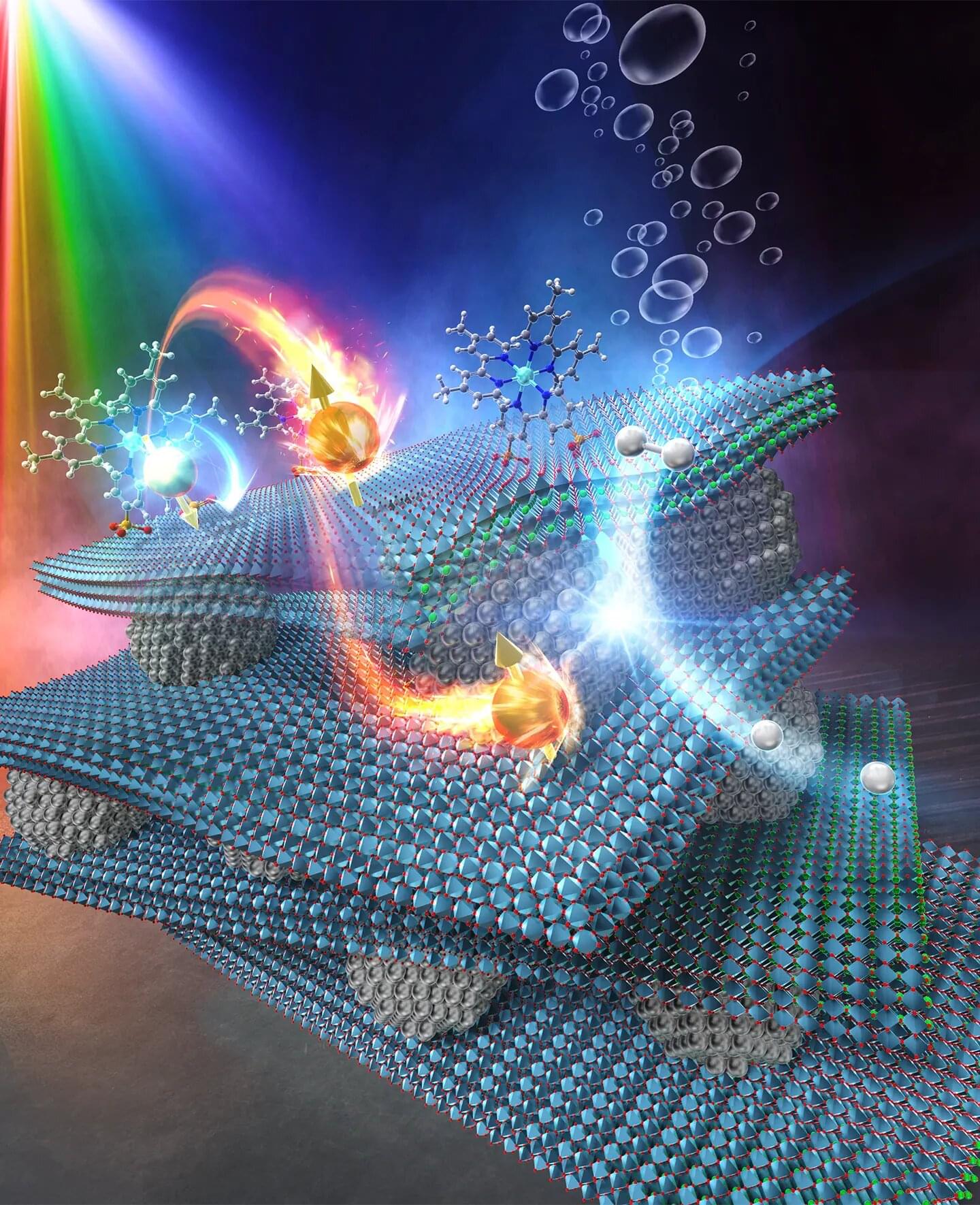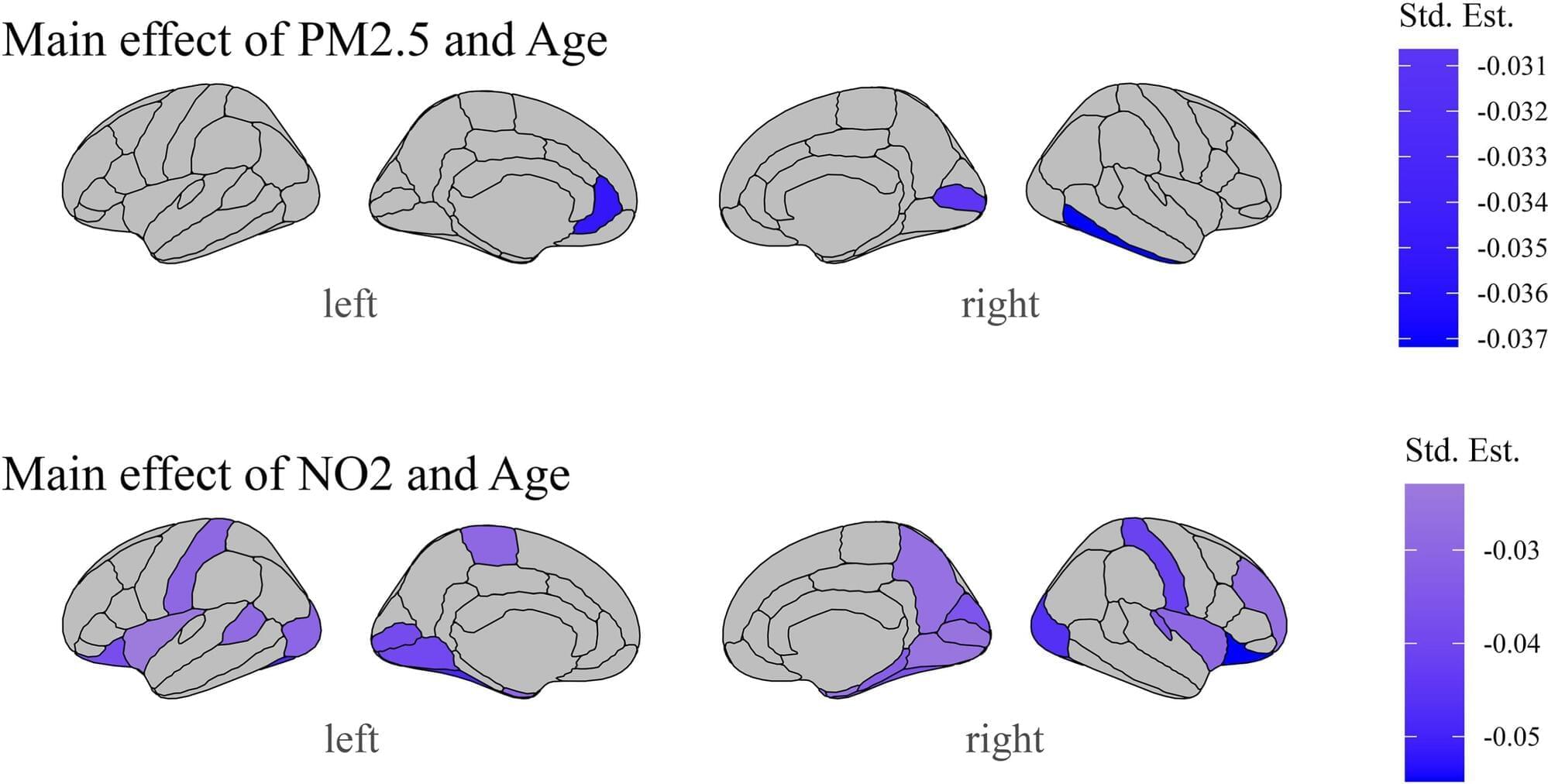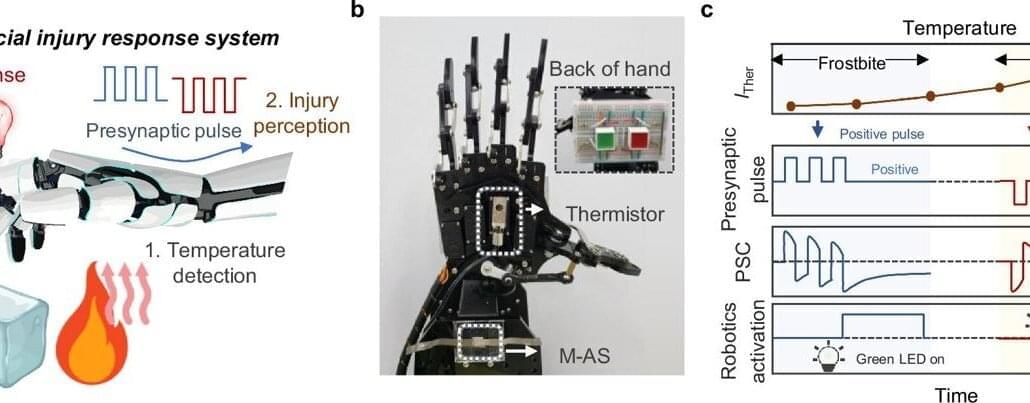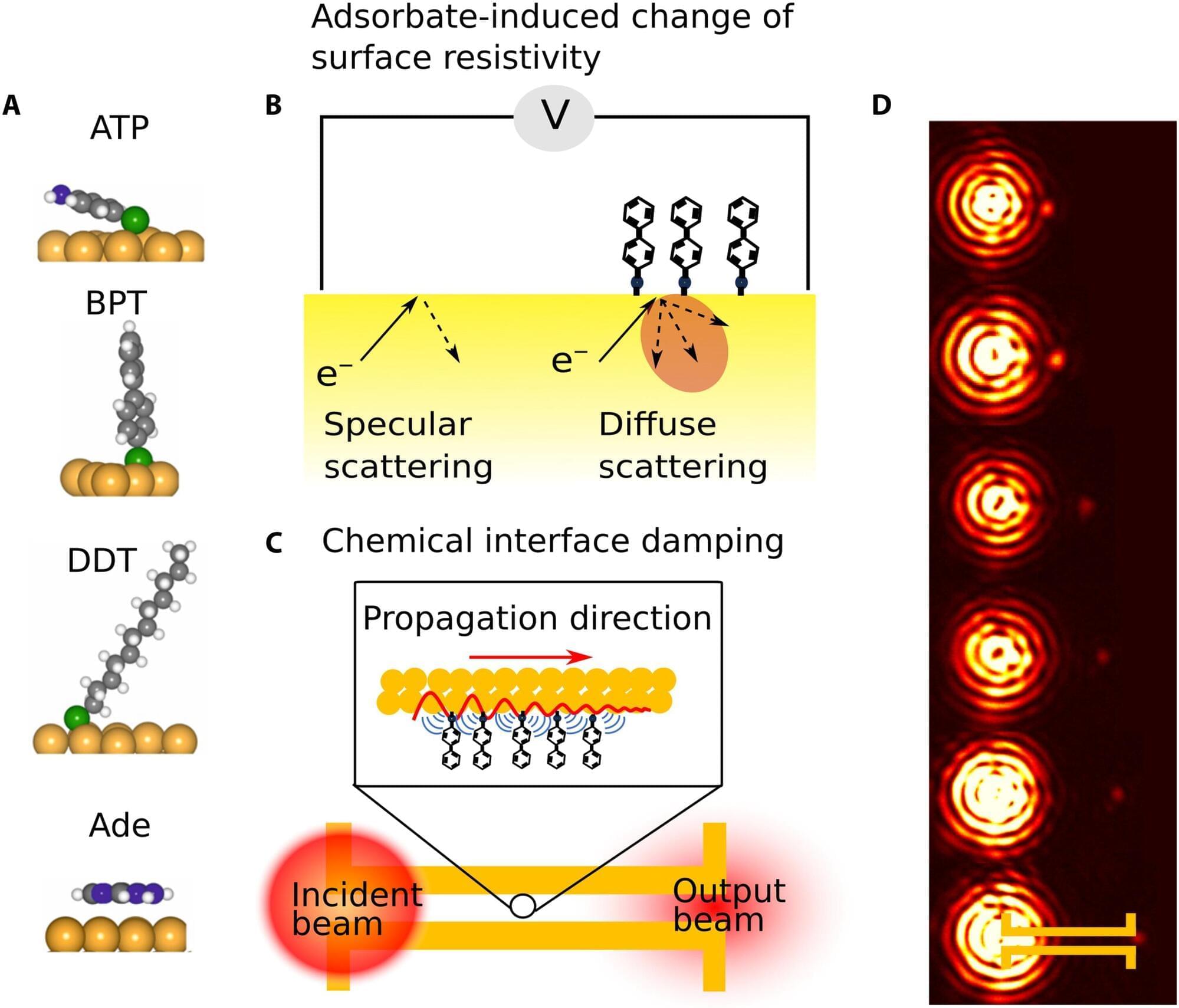Could an electric vehicle travel from Seoul to Busan and back on a single charge? Could drivers stop worrying about battery performance even in winter? A Korean research team has taken a major step toward answering these questions by developing an anode-free lithium metal battery that can deliver nearly double driving range using the same battery volume.
A joint research team led by Professor Soojin Park and Dr. Dong-Yeob Han of the Department of Chemistry at POSTECH, together with Professor Nam-Soon Choi and Dr. Saehun Kim of KAIST, and Professor Tae Kyung Lee and researcher Junsu Son of Gyeongsang National University, has successfully achieved a volumetric energy density of 1,270 Wh/L in an anode-free lithium metal battery. This value is nearly twice that of current lithium-ion batteries used in electric vehicles, which typically deliver around 650 Wh/L. The article is published in Advanced Materials.
An anode-free lithium metal battery eliminates the conventional anode altogether. Instead, lithium ions stored in the cathode move during charging and deposit directly onto a copper current collector. By removing unnecessary components, more internal space can be devoted to energy storage, much like fitting more fuel into the same-sized tank.
